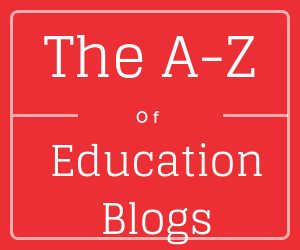The hefty price of ‘study drug’ misuse on college campuses

Lina Begdache, Binghamton University, State University of New York
Nonmedical use of Attention Deficit Hyperactivity Disorder (ADHD) drugs on college campuses, such as Adderall, Ritalin, Concerta and Vyvanse, has exploded in the past decade, with a parallel rise in depression disorders and binge drinking among young adults.
These ADHD drugs act as a brain stimulant that are normally prescribed to individuals who display symptoms of ADHD. These stimulants boost the availability of dopamine, a chemical responsible for transmitting signals between the nerve cells (neurons) of the brain.
But now a growing student population has been using them as “study” drugs – that help them stay up all night and concentrate. According to a 2007 National Institutes of Health (NIH) study, abuse of nonmedical prescription drugs among college students, such as ADHD meds, increased from 8.3 percent in 1996 to 14.6 percent in 2006.
Besides helping with concentration, dopamine is also associated with motivation and pleasurable feelings. Individuals who use these ADHD drugs nonmedically experience a surge in dopamine similar to that caused by illicit drugs which induces a great sense of well-being.
My journey with investigating the effect of the stimulant use nonmedically on college campuses started with a question from a student seven years ago. The question was about the long-term effect of misuse on brain and physical health. Having an educational background in cell and molecular biology with a concentration in neuroscience, I started a literature review and soon became an educator on the topic to teach students about the effects of such stimulant misuse on the maturing brain.
College students who take ADHD drugs without medical need could risk developing drug dependence as well as a host of mental ailments.
Substance abuse in college
College students have been reported to use many stimulants, including but not limited to Adderrall, Ritalin and Dexedrine.
According to the 2008 National Survey on Drug Use and Health, students who used Adderall for nonmedical purposes were three times more likely than those who had not used Adderall nonmedically to use marijuana. They were also eight times more likely to use cocaine. In addition, 90 percent of the students who used Adderall nonmedically were binge alcohol consumers.

College students use ADHD drugs as ‘study’ drugs. David A Ellis, CC BY
Generally, college students who abuse ADHD drugs are white, male and part of a fraternity or a sorority. Often they have a low GPA as well.
ADHD drugs appear harmless to many, as often they are prescribed by physicians, even though these drugs have a “Black Box warning,” which
appears on a prescription drug’s label to call attention to serious or life-threatening risks. Despite such a strict warning from the FDA, many practitioners end up prescribing them based on subjective reporting of symptoms of ADHD. The lack of a gold standard for ADHD diagnosis has, in fact, led to physicians overprescribing the drug.
Furthermore, students who get hold of these prescriptions can easily sell pills on the black market. Students who buy these pills illicitly miss seeing the warning about potential abuse, addiction and other side effects.
What’s more, a chewable form of an ADHD drug has been recently introduced in the market. These are fruity-flavored extended-release drugs that dissolve instantly in the mouth. They are targeted for children for a fast medicated response, but present a great potential for abuse.
The neurobiology of addiction
What are the consequences of taking these drugs without a medical condition?
The nonmedical use of the ADHD drugs (stimulants) is of great concern because it raises levels of dopamine the same way illicit drugs do. Therefore, abuse of these drugs may cause the same effect on addiction, brain rewiring and behavioral alteration.
While students may be aware of the harmful effects of “doing drugs,” the use of the ADHD drugs nonmedically may seem harmless because they are prescription medicine.
There is a limited body of knowledge on the effect of long-term nonmedical ADHD drug abuse on the developing brain. Of concern are potential permanent alterations taking place in the pathways of nerve cells of the maturing brain.
ADHD drugs could be addictive, if used without medical necessity. Since brain development continues into the mid-20s and the young brain is remarkably plastic, this sets up a risk of developing chronic substance abuse, addiction and mental ailments.
Nonmedical ADHD drugs, like any illegal drug, collectively activate a nerve pathway known as the “reward system of the brain.” This reward system is responsible for positive feelings such as motivation and pleasure. From an evolutionary point of view, the circuit controls an individual’s responses to motivation and pleasure (e.g., food and sex) which promote survival and fitness, respectively.
The response of the brain reward system to natural cues is highly regulated by a homeostatic mechanism – a process by which the body maintains its constant internal environment.

Individuals can ‘function’ only when the brain is on drugs. Steve Snodgrass, CC BY
However, a nonmedical ADHD drug, like an illegal drug, overactivates this “reward circuit,” thereby disturbing the brain’s internal balance. This causes the brain to maladapt (structurally and functionally) and turn the brain into being “substance-dependent.” These changes happen at the genetic level.
A consequence of this is that the brain starts to need an increased dosage of the drug to respond to the natural cues for motivation and life pleasures. This sets the stage for more substance abuse. The individual then reaches for higher doses and more potent substances. Eventually, a cycle of further dependence and drug abuse ensues.
Impact of abuse
The concern with the nonmedical ADHD drug abuse is that it might prime the brain for use of other substances such as alcohol, cocaine and marijuana (something that the national surveys mentioned above revealed).
Major behavioral changes emerge such as compulsive drug seeking, aggression, mood swings, psychosis, abnormal libido and suicidal thoughts.
In fact, there have been documented cases of college students who have taken their lives following an addiction to nonmedical ADHD drugs.
Animal studies show that the changes that lead to rewiring of the brain are due to an alteration in gene function. Some of these changes become permanent and heritable, especially with prolonged abuse, meaning that the altered (newly programmed) genes are passed down to offspring.
In fact, a body of evidence is linking the process of addiction (among many chronic diseases) to altered gene function profile passed down by ancestors. This altered profile could predispose their offspring to certain disorders.
Currently, prescription of ADHD drug is based mostly on subjective self-reported symptoms, and a gold standard for ADHD diagnosis remains to be perfected. As a lyric from the rock band Marilyn Manson says:
Whatever does not kill you, it’s gonna leave a scar.
That’s the case with nonprescription ADHD drug abuse.
![]()
Lina Begdache, Research Assistant Professor, Binghamton University, State University of New York
This article was originally published on The Conversation. Read the original article.





